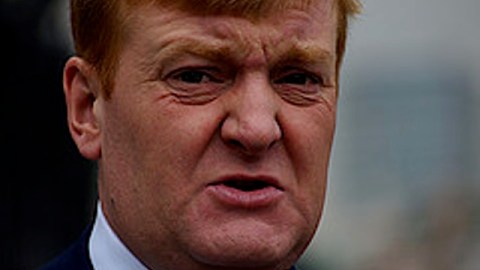Charles Kennedy Considers Defection to Labour

London: Westminster sources claim that the former leader of the Liberal Democrats, Charles Kennedy, has been discussing defecting to the Labour Party, with four or five Liberal Democrat colleagues. The reports have been confirmed by three separate sources, including one close to Ed Miliband’s Labour leadership campaign. Kennedy, along with others are believed to be planning some announcement towards the end of the month of August – which would also coincide with ballot papers for the Labour leadership elections being sent out to party members. It is unclear whether there have been formal or informal contacts between the Kennedy and Miliband camps.
It has been widely known for some times that Charles Kennedy is unhappy at the coalition deal struck with David Cameron by his successor, Nick Clegg. These reservations are shared widely in the Liberal Democrat Party, and have given rise to separate reports that Business Secretary, Vince Cable, who was once a member of the Labour Party, was deeply unhappy at the coalition deal being struck between Cameron and Clegg and made last ditch appeals to outgoing Prime Minister Gordon Brown. But reports that Kennedy, under whose leadership the Liberal Democrats enjoyed record levels of support, is countenancing defection will fuel speculation that he – and perhaps others – could be offered positions on the Opposition front bench – and a return from relative obscurity to front-line British politics. Kennedy is known to be privately supportive of Ed Miliband, who he sees as a progressive alternative to his older brother David. Any public support for Ed Miliband from Charles Kennedy and other leading Liberal Democrats could tip the balance in Ed Miliband’s favour in Labour’s tightly fought leadership election race – a leadership race being fought between two brothers.
Liberal Democrat insiders point to the fact that Kennedy and his supporters emerged from the SDP, the old Social Democratic breakaway party, but that in seeking to “break the mould” of British politics and merging with the Liberals to become the Liberal Democrats in the 1980s, never in their wildest dreams expected to end up supporting a minority Conservative Government intent on the most swingeing cuts in public spending since the Second World War. They are appalled by what they see as the surrender of many key Liberal Democrat cornerstone policies, such as the commitment not to renew the Trident Nuclear submarine fleet, and have failed to be impressed by Nick Clegg’s perfomance thus far. They also say that some Liberal Democrat MPs, especially in Northern English and Scottish seats where Labour is in second place, now fear being wiped out at the next General Election. These fears have been compounded by the recent announcement from the Liberal Democrat’s Deputy Leader, Simon Hughes that there will be no General Election pact between the Conservatives and his party. Tellingly Simon Hughes has also talked of a possible “future Lib Lab Coalition”, with Ed Miliband responding positively, although pointedly saying that any future coalition deal could only be struck with a new Liberal Democrat leader in place, in other words, not Nick Clegg.
Charles Kennedy’s own Scottish seat of Caithness and Sutherland had historically been a Labour seat, before it’s then MP, Robert Maclennan, defected to the SDP in the 1980s, and became the party’s last leader. Lord Maclennan, Lord Newby – a former founding member of the SDP and Chief of Staff under Charles Kennedy – are also being mentioned as possible supporters of the Kennedy initiative.




